- Home
- Andy McNab
Silencer
Silencer Read online
ABOUT THE BOOK
1993: Under deep cover, Nick Stone and a specialist surveillance team have spent weeks in the jungles and city streets of Colombia. Their mission: to locate the boss of the world’s most murderous drugs cartel – and terminate him with extreme prejudice.
Now they can strike. But to get close enough to fire the fatal shot, Nick must reveal his face. It’s a risk he’s willing to take – since only the man who is about to die will see him. Or so he thinks . . .
2012: Nick is in Moscow: semi-retired; semi-married to Anna; very much the devoted father of their newborn son. But when the boy falls dangerously ill and the doctor who saves him comes under threat, Nick finds himself back in the firing line. To stop his cover being terminally blown, he must follow a trail that begins in Triad-controlled Hong Kong and propels him back into the even more brutal world he thought he’d left behind.
The forces ranged against him have guns, helicopters, private armies and a terrified population in their vice-like grip. Nick Stone has two decades of operational skills that may no longer be deniable – and a fierce desire to protect a woman and a child who now mean more to him than life itself.
Contents
Cover
About the Book
Title Page
PART ONE
Chapter 1
Chapter 2
Chapter 3
Chapter 4
Chapter 5
Chapter 6
Chapter 7
Chapter 8
Chapter 9
Chapter 10
PART TWO
Chapter 1
Chapter 2
Chapter 3
Chapter 4
Chapter 5
Chapter 6
Chapter 7
Chapter 8
Chapter 9
Chapter 10
Chapter 11
Chapter 12
Chapter 13
Chapter 14
Chapter 15
Chapter 16
Chapter 17
Chapter 18
Chapter 19
Chapter 20
Chapter 21
Chapter 22
PART THREE
Chapter 1
Chapter 2
Chapter 3
Chapter 4
Chapter 5
Chapter 6
Chapter 7
Chapter 8
Chapter 9
Chapter 10
Chapter 11
Chapter 12
Chapter 13
Chapter 14
PART FOUR
Chapter 1
Chapter 2
Chapter 3
Chapter 4
Chapter 5
Chapter 6
Chapter 7
Chapter 8
Chapter 9
Chapter 10
Chapter 11
Chapter 12
Chapter 13
Chapter 14
Chapter 15
Chapter 16
Chapter 17
Chapter 18
Chapter 19
Chapter 20
Chapter 21
PART FIVE
Chapter 1
Chapter 2
Chapter 3
Chapter 4
Chapter 5
Chapter 6
Chapter 7
Chapter 8
Chapter 9
Chapter 10
Chapter 11
Chapter 12
Chapter 13
Chapter 14
Chapter 15
Chapter 16
PART SIX
Chapter 1
Chapter 2
Chapter 3
Chapter 4
Chapter 5
Chapter 6
Chapter 7
Chapter 8
Chapter 9
Chapter 10
Chapter 11
Chapter 12
Chapter 13
Chapter 14
Chapter 15
Chapter 16
Chapter 17
Chapter 18
Chapter 19
PART SEVEN
Chapter 1
Chapter 2
Chapter 3
Chapter 4
Chapter 5
Chapter 6
Chapter 7
Chapter 8
Chapter 9
Chapter 10
Chapter 11
Chapter 12
Chapter 13
Chapter 14
Chapter 15
Chapter 16
Chapter 17
Chapter 18
Chapter 19
Chapter 20
Chapter 21
Chapter 22
Chapter 23
Chapter 24
Chapter 25
Chapter 26
Chapter 27
Chapter 28
Chapter 29
Chapter 30
Chapter 31
Chapter 32
Chapter 33
Chapter 34
EPILOGUE
Chapter 1
Chapter 2
Chapter 3
Chapter 4
About the Author
Also by Andy McNab
Copyright
SILENCER
Andy McNab
PART ONE
1
Jaco, Costa Rica
29 November 1993
07.37 hrs
The Nazi eagle and swastika were still stamped under the Mauser bolt housing. Its sniper sight looked like a pointy fence post. Most novices aimed where a thin horizontal line crossed it, about two-thirds of the way up, but that was only there so you could check for canting – weapon tilting. The correct aim was right at the pinnacle.
I squinted into the very basic x4 magnification Second World War Zeiss optic. The target building in the valley below us was a blur. Torrential rain stung my face and battered the lens; the wipe I gave it with my thumb only made things worse.
‘One shot, one kill – still sure you can do it, hombre?’
I nodded a yes to the black-and-white western piss-take he’d been dishing out since we’d first met, but in fact, you know what, I wasn’t sure. I was soaked to the skin, covered with mud and leaf litter, and bitten to fuck by every insect in Central America that could fly, crawl, or sit and wait for you to put your arse down alongside it.
Worse still, I felt jumpy. This was my first job for the Secret Intelligence Service. It might have been same shit, different boss, but my whole future with them could hang on this one shot, and the dickhead I’d had to drag along with me was a millstone round my neck.
I eased my head away from the weapon. Dino was partially submerged in mud; the rest of him was covered with big lumps of rainforest. His eyes were pressed against what looked like a pair of binos on steroids. For the hundredth time since we’d got there he pressed a button on the casing and fired off a beam of invisible infrared light, in case the shack might have legged it further down the valley in the last few minutes.
‘Four hundred and forty-seven metres.’
‘I know, Dino. I know.’
The range was adjusted via a dial on top of the casing. I had it at 450.
Dino had shaved his head to a number-one for this job, and dyed what was left blond. To look at him, you’d think that the Mauser had belonged to his granddad. Maybe it had. ‘Need-to-know’ didn’t seem to be high on the DEA’s standard operational procedure: Agent Zavagno had already told me way more about his background than I needed to know.
His Mexican grandparents had swum the Rio Grande with their kids after watching too much Dallas and Dynasty. Dinner with JR and Joan Collins never materialized, but little Dino had begun to live the American Dream in the shack next door to them in some shit-kicking town
just inside the border.
I was no linguist, but he sounded more Italian to me than Mexican, and there was definitely a touch of European in Dino’s DNA. Hundreds of Mussolini’s old mates had joined the flood of Nazis to Central and South America immediately after the Second World War – which probably went some way towards explaining his Boys from Brazil hairdo.
Dino might have been in his mid-twenties with a wing forward’s physique, but I felt like I’d had to drag him every centimetre of the twelve Ks from town. It wasn’t that he didn’t want to be there; I was sure his passion and enthusiasm ticked all the boxes at the DEA’s Washington HR department. But he operated out of New Mexico, the land of tacos and dustbowls. He’d never spent time in the rainforest. He’d had no operational experience in the field, come to that, and didn’t know how to pace himself.
That wasn’t his only problem. He’d got it into his head that Brits liked a brew, and insisted on Lipton’s – the bags in the little yellow packets.
To make things worse, the one-horse town we’d hung out in was crawling with hippies, who’d gone there for the Summer of Love, and swathes of young surfer dudes, who’d come to catch a wave or two in recent years and also forgotten to leave. The girls looked tanned, fit and up for a party. Dino wore his cock on his dyed-blond head and had been reluctant to up sticks before he’d even received an invitation.
It had taken us ten long, sweat-soaked, mosquito-bitten hours to locate Jesús Orjuela’s latest hideaway. It had then taken us three more to crawl undetected into our fire position on the high ground to its south. We’d been lying there ever since in a tropical downpour while the Wolf – as he liked to be called, these days – sat and drank coffee in the dry. The thing about wolves is that they’re bold in packs but super-cautious on their own. This one knew that concealment was his best weapon.
The hardwood bungalow I could see through the Mauser sight was a far cry from the Mayfair apartments, Swiss ski chalets and Malibu beach houses that comprised the rest of his property portfolio. It stood on tree-trunk stilts, with a wiggly tin roof that also stretched across a veranda. There was a shuttered window on each gable end and a badly fitting door at the front, between two more windows with shutters, but at least everyone inside was sheltered.
And anonymous.
The only giveaway was the chunky, all-American Ford F150 pick-up parked outside. It would have been up to its axles in mud, had it not boasted the kind of lifted suspension that any redneck would have been proud to show off at the local monster-truck fest.
A rusty barbed-wire fence encircled about half an acre of long grass that drifted to the edge of the canopy. A swollen stream the width of a road snaked along the valley a hundred metres or so beyond it; I could see several other shacks spread out on its bank, each with its own patch of mud for the pigs to have fun in. Half a dozen crocodiles lazed nearby, jaws propped open as if they were playing raindrop catch or waiting for some fresh pork to wander in. They looked as laid-back as the country they called home.
Big government had protected this place from the nightmare civil wars and American-backed insurgency that had contaminated most of Central America in the 1970s and 1980s. Costa Rica didn’t even have an army. All it cared about was developing tourism and protecting the rainforest. Hardwoods towered forty metres above us, man-made buttresses a couple of metres high supporting them like stabilizers on a Christmas-tree stand.
I felt a little sorry that some of the shit spreading from the south was about to stick to this garden paradise.
I focused once more on the view through the blurred optic. I had the door and windows covered. Wherever the Wolf emerged, I’d have him. One good shot and he’d be flat on the veranda floor, victim of an old-fashioned assassination by a rival drugs cartel based beyond the horizon.
2
The Wolf was Colombian to his lizard-skin loafers. I couldn’t help smiling when I was shown photographs of him at the briefing in MI6’s Vauxhall HQ. I’d always associated wolves with lean and hungry; this boy could have fitted a whole pack into the waistband of his jeans. But there was no mistaking the sharpness of his teeth – or those of the cartel he ran in conjunction with his old schoolmate, Pablo Escobar.
Both born in 1949, they had grown up together in the hills around Medellín; right place, right time – if your career of choice happened to be drugs baron. Colombia has direct sea access to both the west and east coasts of the United States, and that puts you in the box seat when you’re shipping illegal gear on an industrial scale.
Jesús and Pablo had started out as debt collectors and gang enforcers in their early teens. They soon developed a reputation for casual and lethal violence. Kidnap for ransom was one of their favourite tricks. If the family refused to pay or couldn’t come up with the cash, the dynamic duo would torture their captive, then kill them. Sometimes they’d do it anyway, just to make a point. ‘Pour encourager les autres,’ Jesús liked to say. ‘That means to encourage the others.’ According to an associate turned DEA informer, he was never without a book, and had a particular weakness for Voltaire, another great defender of civil liberties.
He knew that guns and torture would not be enough to protect their growing fortune. The pool around Medellín teemed with sharks, ever circling, always looking for the kill. They had to show they were capable of defending what was theirs. And, as the military memoirs he devoured had taught him, the best form of defence was attack.
Jesús and Pablo took terror to new levels. Women were raped as punishment for a crime by a family member – and every relative, children included, was rounded up to witness it. They made their victims beg and scream in front of their loved ones, and left their mutilated corpses on display. Sometimes he and Pablo put their heads on stakes and hung their intestines from trees. Male victims had their cocks chopped off and stuffed into their mouths. Women had their breasts sliced off with machetes, their stomachs cut open and their wombs stretched over their heads.
The Wolf soon perfected the signature dish that earned him his nickname: he’d rip open the throat of a victim and pull his tongue through the gash like some grotesque necktie – which went to show that your worst enemy was the psychopath with a library card.
The Wolf and Escobar wielded the raw power that only terror can bring. In its wake came so much wealth they offered to pay off Colombia’s national debt. Escobar even became a congressman, a respectable citizen, a representative of the people. His new status gave him judicial immunity, which meant he could no longer be prosecuted for crimes under Colombian law – and he made sure the Wolf couldn’t either.
Escobar also had a shiny new passport that gave him international diplomatic immunity. He took his family north of the border for their holidays, even posed for happy snaps in front of the White House. The DEA were pulling their hair out – not just because he could mince around his Miami mansions with impunity, but because they knew he planned to become president of Colombia and there was nothing they could do to stop him.
Ironically, it only went tits up for the congressman and his mate when some bright spark in the US discovered that everyday baking soda provided a simple, low-cost alternative for the highly flammable diethyl ether used in the manufacture of freebase cocaine – and the new cocktail was also much more addictive. Crack spread like wildfire through the USA’s inner-city streets and was soon a social epidemic. Almost overnight, the white stuff lost its chic. It was no longer the recreational substance of choice for the well-heeled trendsetter. Washington had no choice but to grip the situation – and that meant gripping the cartels.
What had started as a profit bonanza was the beginning of the end for the dynamic duo. Their political platform disintegrated beneath them; they’d become plague-carrying rats, enemies of the state. Which was when the SAS was called in to help.
Me, Pablo and Jesús went way back.
3
Dino fired the infrared beam for the hundred and first time. ‘Four hundred and forty-seven, hombre. Don’t screw up, w
ill you?’
His voice was too high-pitched for someone his size. It had been funny to start with, but now it was starting to get on my nerves even more than the fucking rain. The finger I invited him to swivel on was white and wrinkled, like I’d been in a bath all day.
Margaret Thatcher had been in Number Ten when crack cocaine appeared on UK streets, and she took it very personally indeed. I was a corporal in the Regiment at the time she offered us to Reagan as part of the First Strike Policy to stop the drugs at source. But it was easier said than done. With twenty thousand drug-related murders a year, Colombia, a country the size of Spain, Portugal and France combined, had become the most dangerous place on earth. A Colombian male between the ages of eighteen and sixty was more likely to die of gunshot wounds than any other cause.
We had flown down in 1988 to train the anti-narcotics police, first to penetrate the rainforest, then to find and destroy the manufacturing plants. The problem was, these guys were only on about a hundred US a month. For that, they risked getting killed – their families raped and murdered – by Pablo and the Wolf. So they didn’t give a shit if rich, overfed North American gringos were off their heads on coke.
Colombia, I soon learned, was all about self-interest. An airliner went down in the jungle while I was there. When the police arrived on the scene they found the local villagers scavenging through the wreckage. Quite a few passengers had survived, but were badly injured. The villagers didn’t give them a second glance in their rush to rip the watches, rings and wallets off the nearby corpses.
Life was cheap in this neck of the woods. And everyone had a price.
4
The village was dead – not surprisingly, beneath this weight of rainfall. Ahead of me was a solid wall of water, thumping into the ground with such force it created mini mud-craters. Even the scabby chickens and the pot-bellied pigs had got their heads down. Raindrops stitched the mud all around them like machine-gun fire. At least it washed the leaf litter off our faces.
I had the continuous fuck-ups by the Blocada de Búsqueda (Search Bloc) to thank for this. The Colombian Police unit’s sole purpose was to hunt down Orjuela and his mates, and if they’d done a proper job I wouldn’t have been turning into a human prune.
The US Army’s secret electronic surveillance unit, codenamed Centra Spike, crammed the small Beechcraft turboprop with high-tech gear that tracked mobile-phone and radio transmissions. The theory: pinpoint Escobar and the Wolf by finding their voices. It hadn’t taken them long – Jesús was always gobbing off about something – but high-level corruption and incompetence in Search Bloc meant they were too slow reacting. Its commanders didn’t know which of their two hundred officers they could trust not to alert the Wolf in time for him to do a runner.

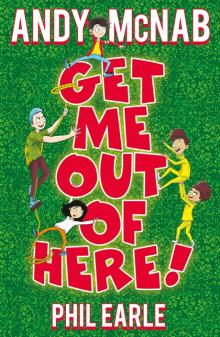 Get Me Out of Here!
Get Me Out of Here!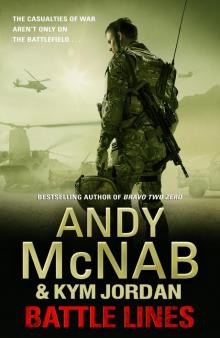 Battle Lines
Battle Lines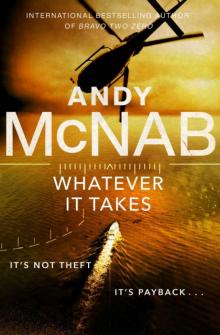 Whatever It Takes
Whatever It Takes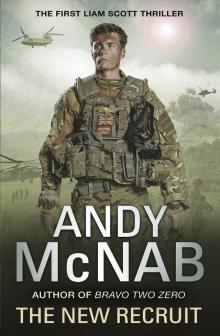 The New Recruit
The New Recruit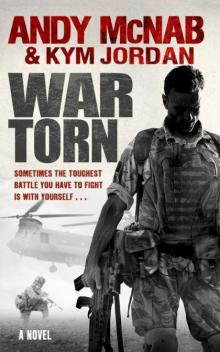 War Torn
War Torn Brute Force
Brute Force Crossfire
Crossfire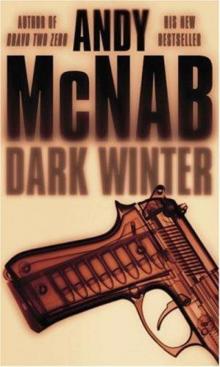 Dark Winter ns-6
Dark Winter ns-6 The Grey Man
The Grey Man Spoken from the Front
Spoken from the Front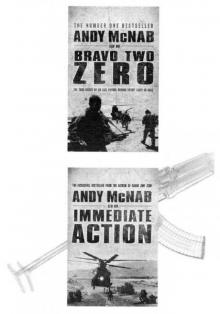 Meltdown
Meltdown Recoil
Recoil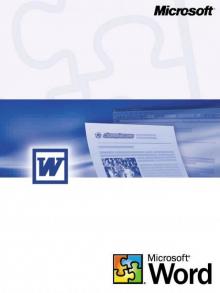 Nick Stone 1 - Remote Control.
Nick Stone 1 - Remote Control.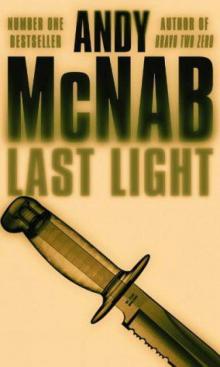 Last Light ns-4
Last Light ns-4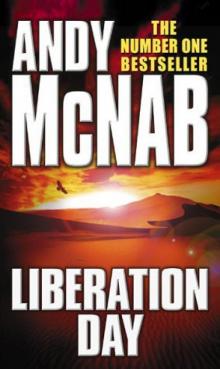 Liberation day
Liberation day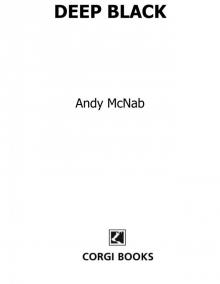 Deep Black
Deep Black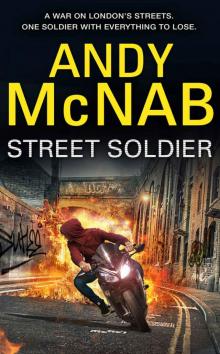 Street Soldier
Street Soldier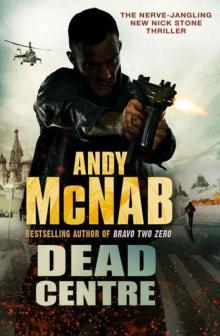 Dead Centre ns-14
Dead Centre ns-14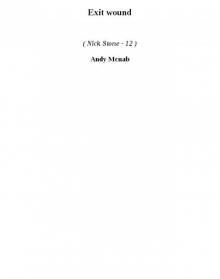 Exit wound ns-12
Exit wound ns-12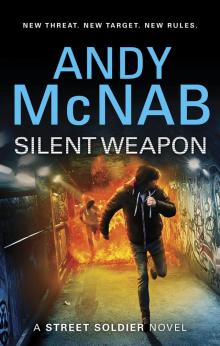 Silent Weapon
Silent Weapon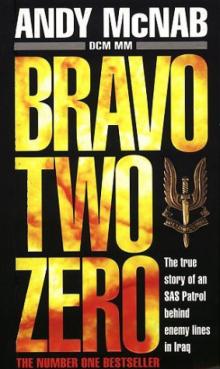 Bravo two zero
Bravo two zero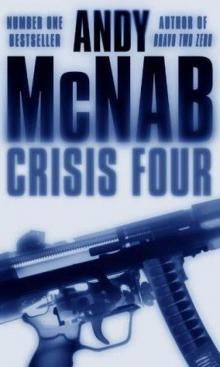 Crisis Four ns-2
Crisis Four ns-2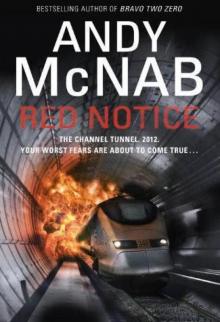 Red Notice
Red Notice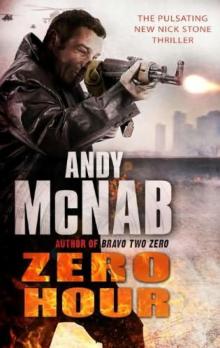 NS13 Zero Hour
NS13 Zero Hour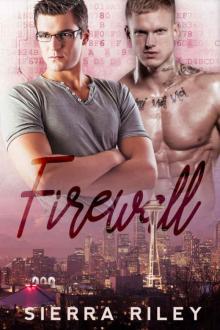 Firewall
Firewall Last Light
Last Light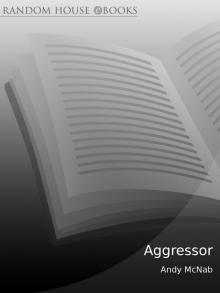 Aggressor
Aggressor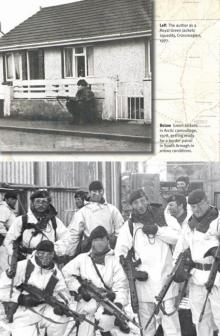 Seven Troop
Seven Troop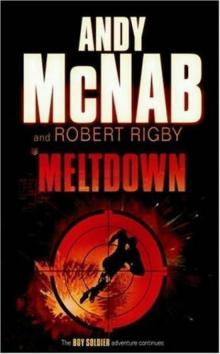 Meltdown bs-4
Meltdown bs-4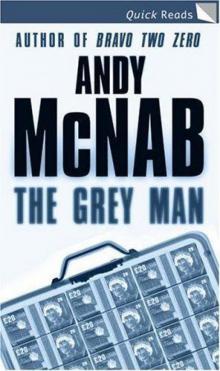 The Grey Man (quick reads)
The Grey Man (quick reads)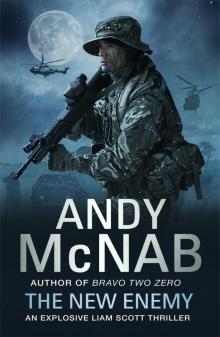 The New Enemy
The New Enemy Avenger
Avenger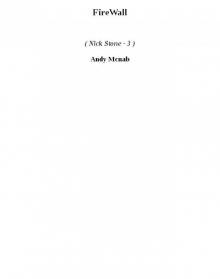 FireWall ns-3
FireWall ns-3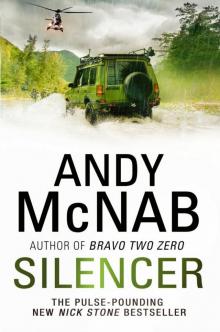 Silencer
Silencer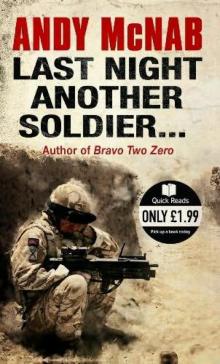 Last Night-Another Soldier…
Last Night-Another Soldier…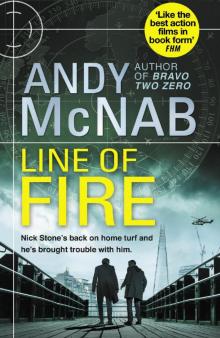 Line of Fire:
Line of Fire: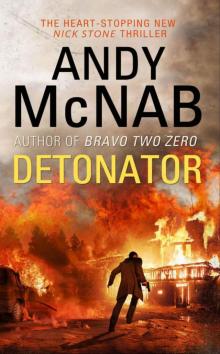 Detonator
Detonator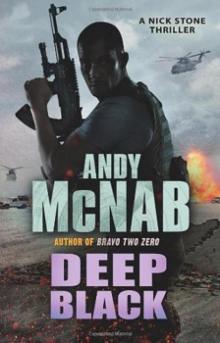 Deep Black ns-7
Deep Black ns-7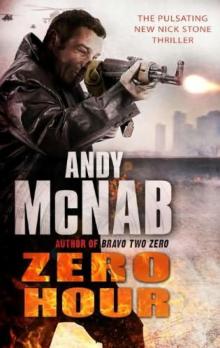 Zero Hour (2010) ns-13
Zero Hour (2010) ns-13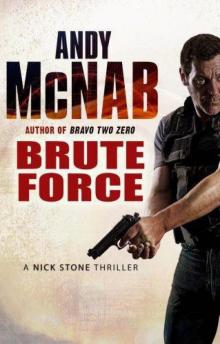 Brute Force ns-11
Brute Force ns-11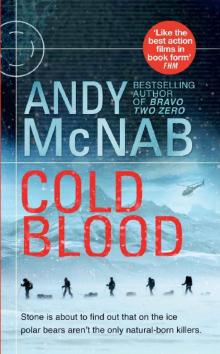 Cold Blood
Cold Blood Terminal Velocity
Terminal Velocity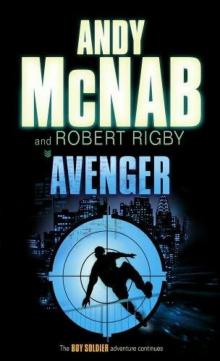 Avenger bs-3
Avenger bs-3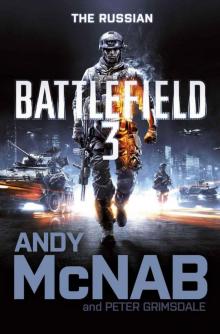 Battlefield 3: The Russian
Battlefield 3: The Russian DropZone
DropZone Zero Hour
Zero Hour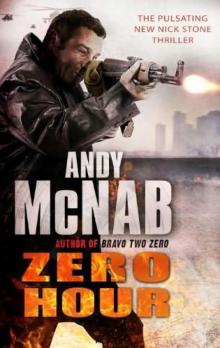 NS13 Zero Hour (2010)
NS13 Zero Hour (2010)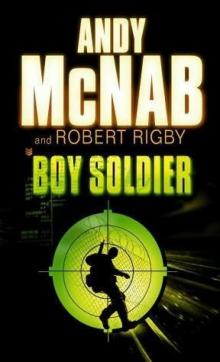 Boy soldier bs-1
Boy soldier bs-1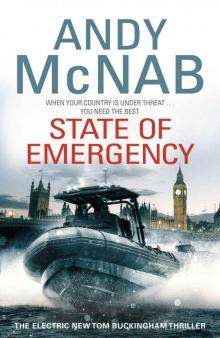 State Of Emergency: (Tom Buckingham Thriller 3)
State Of Emergency: (Tom Buckingham Thriller 3)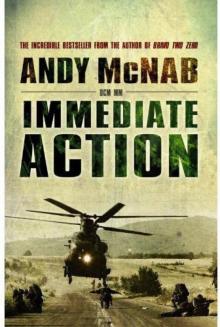 Immediate Action
Immediate Action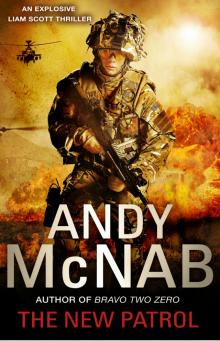 The New Patrol
The New Patrol Crisis Four
Crisis Four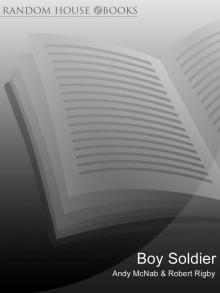 Boy Soldier
Boy Soldier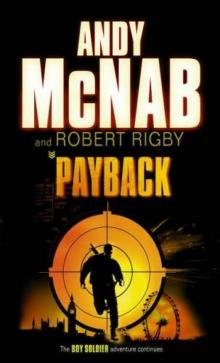 Payback bs-2
Payback bs-2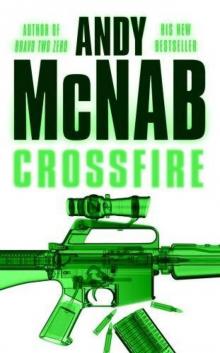 Crossfire ns-10
Crossfire ns-10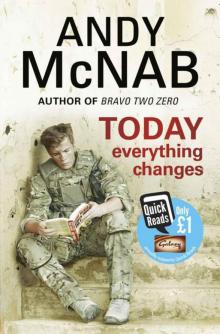 Today Everything Changes: Quick Read
Today Everything Changes: Quick Read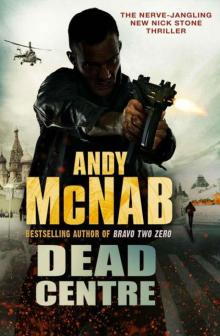 Dead Centre
Dead Centre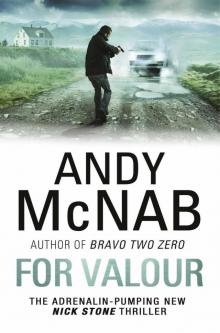 For Valour
For Valour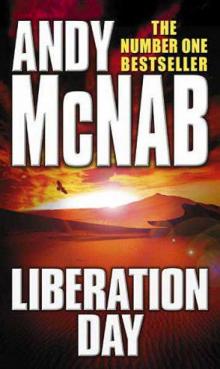 Liberation Day ns-5
Liberation Day ns-5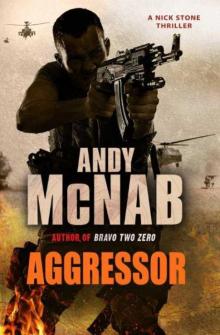 Aggressor ns-8
Aggressor ns-8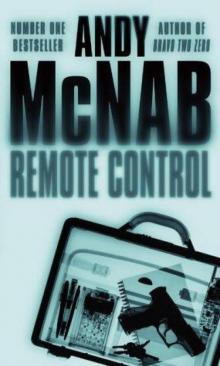 Remote Control ns-1
Remote Control ns-1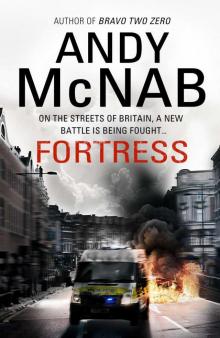 Fortress
Fortress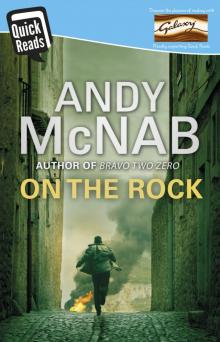 On the Rock
On the Rock Dark Winter
Dark Winter